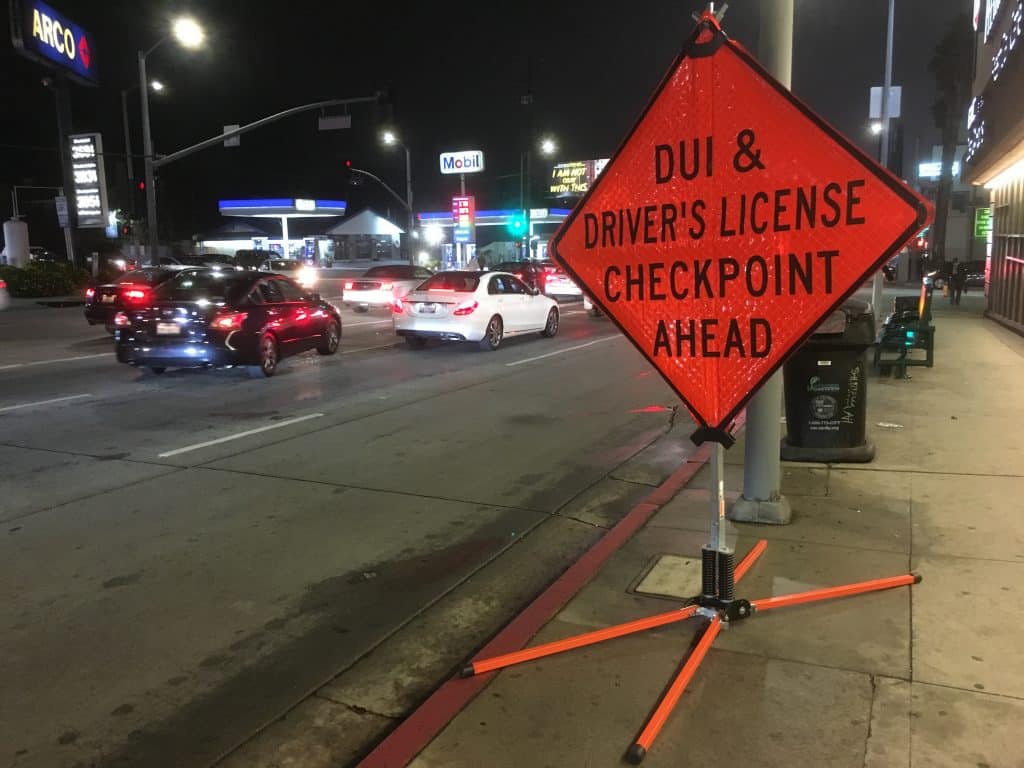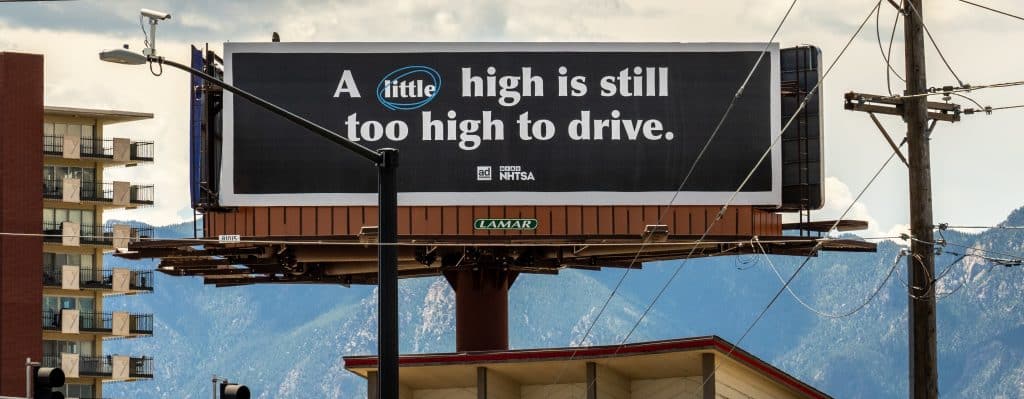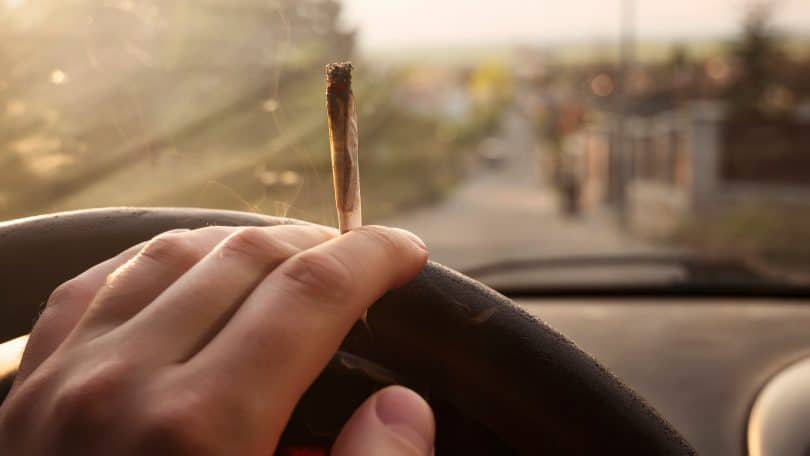When we think of a DUI, we tend to think of people driving drunk. It makes sense, as a huge number of vehicular accidents are indeed caused by drunk drivers. But as cannabis legalization sweeps the country, the topic of getting a DUI for using cannabis while driving has become of greater interest and importance. We know that smoking weed and driving is illegal, but is it really as dangerous as driving while under the influence of alcohol or other drugs? Let’s take a closer look.
What is a DUI?
The terms DUI (Driving Under the Influence) or DWI/OWI (Driving/Operating While Intoxicated), are pretty self-explanatory. It means that a person was operating a motor vehicle while under the influence of a mind-altering substance. Most often, these cases involve alcohol or some type of illegal substance like heroin, methamphetamine, or even cannabis. In some circumstances, even OTC medications like Nyquil and Benadryl can lead to a DUI arrest because they cause drowsiness and can negatively impact motor skills.
While some people can handle perfectly handle driving after smoking a little bit of weed or taking some cold medication (pro tip, opt for the non-drowsy varieties), the general rule of thumb is that you should be sober and clearheaded when behind the wheel of car – and never drive after drinking alcohol or using any other heavy substance. Afterall, driving is a huge responsibility. It’s not just your own life you hold in your hands, but those of your passengers as well as other drivers and pedestrians on the road.

That being said, an alarming number of people seem to disregard this fact and drive while intoxicated anyway. In the United States, 10% of all criminal arrests are for driving under the influence, more than all violent crimes combined. South Dakota, North Dakota, and Wyoming lead the nation in DUI arrests, and in In Rhode Island, North Dakota, and New Hampshire, more than 40% of traffic deaths involve drunk drivers. Vehicular accidents are also the leading cause of death among young people ages 12-19 years old.
What happens when someone is charged with a DUI is dependent on several different factors such as what substances where involved and level of intoxication, whether an accident occurred, if someone was injured and the severity of the injuries, and so on. What state you are in also plays a role, but generally speaking, if you’re involved in a simple DUI incident (one that in which illegal drugs were not present and an accident wasn’t caused), you’re still looking at heavy fines and a suspended license for your first offence.
Cannabis and DUIs
Although cannabis is legal in more than half of the US, and is expected to be federally legal soon as well, it’s still illegal to drive while under the influence of it. This holds true anywhere in the US, but the laws and penalties still vary from state to state. For example, some states affirm that something as simple as a positive urine test is enough to charge someone with drugged driving, despite the fact that urinalysis can detect THC in the system for up to 4 weeks after use. This is obviously problematic, especially in medical situations where a patient might have used cannabis many hours before driving and are no longer “intoxicated”.
A small number of states take these testing limitations into consideration and prosecutors have to prove impairment, regardless of how much THC is detected in a person’s system. Examples of acceptable evidence include erratic behavior, speech patterns, or the arresting offer’s testimony that they smelled cannabis in the vehicle (but that last one also raises the question of whether police can use it as an excuse to unlawfully search someone’s car).
A newer method used to test for cannabis impairment behind the wheel, is check for blood-THC content. In the US, this is typically measured in nanograms per milliliter of blood, but there is no general standard and each state has their own limits. Some companies are also working to develop THC breathalyzers that can be utilized in the field.
Cannabis DUI statistics
It’s up for debate whether cannabis intoxication even has that much of an effect on driving at all. Although driving stoned can sometimes affect reaction times and peripheral vision, people typically compensate for these shortcomings by driving more carefully.

That being said, some people really just do not drive well after using cannabis products and they should avoid doing it. What’s nice about these situations, is that people are can’t drive stoned usually avoid doing it anyway because it’s unpleasant and causes anxiety. When it comes to accidents involving only cannabis and no other substance, there is very little statistical data indicating that it’s as unsafe as driving drunk.
For example, a 2010 study published in the American Journal on Addictions, which compared the effects of driving on cannabis versus alcohol, researchers stated that “Epidemiological studies have been inconclusive regarding whether cannabis use causes an increased risk of accidents; in contrast, unanimity exists that alcohol use increases crash risk.”
They did mention that the effects of driving on both, alcohol and cannabis combined (cross-faded), were more enhanced than driving on either substance alone. And of course, alcohol and driving don’t mix, all studies will tell you that. But the fact remains, the results of their research were “inconclusive” as to whether cannabis was even that much of problem for drivers or not.
Thank you for stopping in. Head over to the Cannadelics Weekly Newsletter for direct updates; and get access to awesome deals on cannabis buds, vapes, edibles, smoking devices and equipment, cannabinoid compounds, and some psychedelic products! Go get high responsibly!
Another, more recent, study published in 2022 in the Journal of Studies on Alcohol and Drugs, claimed that legalization of recreational cannabis was associated with a 6.5% increase in injury crashes overall. However, the rates varied quite a bit, with some legal states reporting an 18% increase and others actually reporting up to 8% decreases in crashes. With such a wide range, it’s unlikely that cannabis has anything to do with the changes at all, and it’s likely something else (or a number of different factors) entirely. It’s also important to note that these statistics were only temporary. About 1 year post legalization, the numbers went back to normal.
Other studies even found that car accidents decreased overall in areas where cannabis was legal, and even more so near dispensary locations. In states/cities with dispensaries, insurance premiums went down by an average of $22 per year after legalization. According to the study authors, “we find premium reductions are larger in states with greater patient enrollment and in states that allow smoking.” They added that “existing legalization has reduced health expenditures related to auto accidents by almost $820 million per year with the potential for a further $350 million reduction if legalized nationally.”
Weed DUIs in the news
With cannabis DUIs still being less charted territory from a legal standpoint, and because we know that weed doesn’t cause the same level of impairment as alcohol and other drugs, we rarely hear stories of arrests or car accidents related to cannabis use. However, some occasionally do make the headlines. The arrest of Pittsburgh Steelers running back Le’Veon Bell in 2014 for driving under the influence of marijuana got a lot of attention.
During a traffic stop, police found 20 grams of cannabis in his possession, and as expected, they confiscated it and he was to be charged with possession of an illegal substance. Much to Bell’s surprise he also received a DUI citation for the cannabis, to which he responded “I didn’t know you could get a DUI for being high. I smoked two hours ago. I’m not high anymore. I’m perfectly fine.” As a regular cannabis user, I can safely attest to the fact that 2 hours after consumption, I’m definitely stone-cold sober.
Another arrest that has garnered some media attention is that of 22-year-old Isabella Herrera, who was recently arraigned for hitting and killing man on a Vista, CA, freeway while “high on pot”. According to documents, at around 10:20 a.m. on February 26, Rafael Cardona was changing his tire in the center median of State Route 78 at Emerald Drive when Herrera’s car hit and killed him. Rafael was pronounced dead at the scene.
The prosecutor said they believed the suspect was “high on marijuana”, but they did not offer any additional information as to why they believed that. Was a field sobriety test performed? Did the police find evidence of cannabis use in her vehicle? Did Herrera undergo any type of blood testing? All the articles I found about this are incredibly vague – probably intentionally so – but the fact of the matter is, a young woman is going to trial for killing someone while driving stoned, and the outcome of her trial is something we should all pay attention to.
Final thoughts
It’s important to note that we’re not encouraging anyone to use any substance while driving. However, based on years of anecdotal evidence, as well as recent data on the subject, it’s safe to assume that weed is safer to drive on than alcohol, heroin, or pretty much any other intoxicating substance. Regardless, if you’re pulled over for some type of traffic violation and the officer believes you’ve been smoking in the car, you can still be charged with a cannabis DUI.
Thanks for making your way over! We appreciate you stopping in at Cannadelics.com; where we work to bring you the best in independent news coverage for the cannabis and psychedelics spaces. Visit us regularly for daily news, and sign up to the Cannadelics Weekly Newsletter, so you’re always on top of what’s going on.









